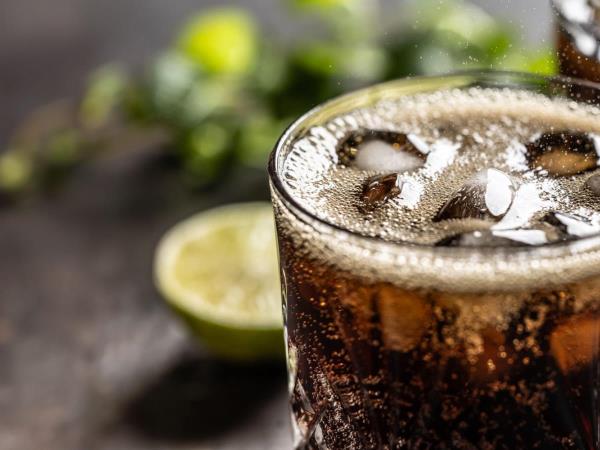Firstly, a bit about strokes - this is when blood supply to part of the brain is interrupted. It can be either an ischemic stroke (when a clot blocks blood flow) or a hemorrhagic stroke, where there is bleeding in the brain. In simple terms - if a person was sipping innocently on carbonated drinks and suddenly found a part of their brain fogging up, they were not joking.
- Carbonated drinks and fruit juices - a recipe for disaster?
The results were surprising: consuming carbonated drinks - whether sweetened or sugar-free options (common in diet beverages) - was associated with a 22% increased risk of stroke. This risk especially escalates if you consume them twice or more daily. As for fruit juices, the story is even more grim: surprisingly, they found that with these, the risk increases by a staggering 37% for hemorrhagic stroke, and consuming them twice a day triples this risk. And as in folklore - it's worse for women.
Of course, many people say - but I drink natural juice, but there's a big catch: many products sold as fruit juices are actually made from concentrates, with added sweeteners and preservatives - meaning the sugary "treats" are more concentrated than freshly squeezed juice. Folk wisdom says that nature doesn't produce instant wonders, but in a modern bottle, you can get everything natural, plus some extra - sugar, which can really make you break a sweat.
- Water - a simple solution?
If you thought it's better to drink something other than water, I must surprise you: researchers found that drinking more than seven glasses of water a day (approximately 1.6–1.8 liters) is linked to a reduced risk of ischemic stroke - the type where a blood clot blocks blood flow. So without complications - simple water - can heal your brain like a true folk balm.
- Coffee - friend or foe?
Coffee is a ritual and part of everyday life for many. But a new analysis from INTERSTROKE showed that consuming more than four cups of coffee a day increases the risk of stroke by a whopping 37%.
Yes, you read that right - four cups. It's hard to just decide that your morning drink will be at most three, but the research clearly shows that moderation matters. Researchers emphasized that there were no findings at lower intake levels, meaning a triple espresso probably won't harm - especially if you're someone in a balanced rhythm.
- Tea - nature's silent power
The colleague coffee has another rival. Tea - "black" (such as Breakfast and Earl Grey) or green - has proven to be an exceptional ally.
Black tea, if you drink 3–4 cups a day, reduces the risk of stroke by 29%.
Green tea offers protection of 27% with the same number of cups.
The message is clear: tea and brains are a winning combination. But folk experience says that sometimes the desire is clouded - the research showed that if you pour milk into tea, the amount of beneficial effects decreases or even disappears. So, if you're a regular user of milk & tea, it might cost you some heartfelt life protection. Folk wisdom says that in this case, starchy milk spoils tea, and the magic of antioxidants is interrupted.
What Folk Wisdom Says
Although the research seems modern, people have been practicing drinking water, tea, cultivating plants for centuries, always valuing cold drinks and simple water. Scientific data confirm this. We've talked about water:
- Seven glasses, fewer clots, fewer strokes.
- With tea: antioxidants reduce inflammation and strengthen blood vessel walls.
- With coffee: too much caffeine raises blood pressure, and if you're already quite tense, it's like a full glass on a hot plate.
Numbers Speaking for Themselves
To solidify the picture with numbers:
- 27,000 participants, 13,500 cases of the first stroke - this is a size similar to studying an entire smaller Slovenian town.
- 22% higher risk for any stroke with carbonated drinks (all types).
- 37% higher risk for hemorrhagic stroke with fruit juices, with a risk tripled with two drinks per day.
- 37% higher risk with drinking more than 4 cups of coffee.
- Protection of 18–20% with tea, if consumed daily enough.
- 29% protection with black tea, 3–4 cups daily.
- 27% protection with green tea, 3–4 cups.
- 18% less likelihood of ischemic stroke - three watery days with more than seven glasses of water.
What Does This Mean for You?
Take a moment and think: every day you drink and it has significant consequences. Many don't even realize when they've had 5 carbonated drinks or 5 cups of coffee. Let's think differently: if you replace one glass of carbonated drink with water, you've already reduced the stroke risk. If tea seems boring to you, drink it warm - people love rituals associated with it.
Tea - Your Strong Ally
If you drink tea, make it without additives, without milk, without sugar... Remember: whether black or green, 3 to 4 cups of tea a day can protect you from a stroke.
Every Sip Counts
The love for drinks runs deep in you. But now you know that some drinks can harm your body, while others can help. Swap artificial drinks for something tried-and-true: water, a cup of milkless tea, and not too much coffee. With these daily habits, you can reduce the risk of stroke without the need for diets or excessive exercise. Folk knowledge and modern medicine are increasingly aligning...









 Would you like to be informed about news on the website?
Would you like to be informed about news on the website?

